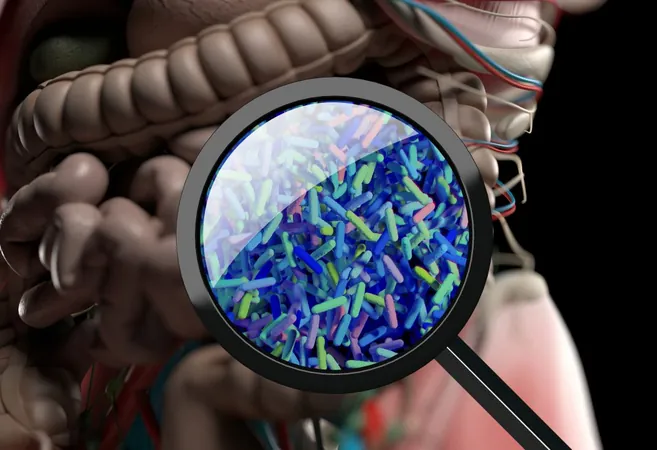
Shocking New Study Reveals the Ketogenic Diet's Surprising Effects on Autoimmune Diseases in Mice!
2024-11-05
Author: Yu
Groundbreaking Study on the Ketogenic Diet
In a groundbreaking study, scientists have confirmed what many have long speculated: the ketogenic (keto) diet may hold the key to calming an overactive immune system, potentially offering hope for individuals suffering from autoimmune diseases such as multiple sclerosis (MS). Researchers from the University of California, San Francisco, have unveiled findings that indicate this high-fat, low-carbohydrate diet promotes the production of beneficial compounds in the gut, leading to fewer symptoms of MS in mice.
Published Findings
Published in the prestigious journal *Cell Reports*, the study titled “A diet-dependent host metabolite shapes the gut microbiota to protect from autoimmunity” highlights the critical interplay between diet, gut bacteria, and the immune system. The researchers noted, "Diet can protect from autoimmune disease; however, whether diet acts via the host and/or microbiome remains unclear." Their exploration of the ketogenic diet provides significant insights into these complex interactions.
Mechanism of the Ketogenic Diet
The ketogenic diet dramatically limits carbohydrate intake, cutting out bread, pasta, sugar, and many fruits while allowing free consumption of fats. This shift forces the body into a state called ketosis, where it begins to break down fats for fuel, producing ketone bodies like β-hydroxybutyrate (βHB) — a compound that may also modulate immune responses.
Key Findings from Experiments
In their experiments, the scientists used a mouse model of MS and found that higher levels of βHB corresponded with milder symptoms of the disease. Specifically, βHB encouraged the growth of the gut bacterium *Lactobacillus murinus*, which in turn produced a metabolite known as indole lactic acid (ILA). This metabolite was found to inhibit the activation of T helper 17 immune cells, key players in the pathology of MS and related autoimmune conditions.
Potential for Dietary Intervention
Dr. Peter Turnbaugh, a key figure in this research, expressed excitement at the potential of using diet to mitigate inflammatory diseases: “What was really exciting was finding that we could protect these mice from inflammatory disease just by putting them on a diet that we supplemented with these compounds.”
Comparison of Dietary Regimens
The researchers' investigation did not stop there; they analyzed the effects of βHB-rich diets versus other dietary regimens. Mice incapable of producing βHB exhibited significantly more inflammation. However, supplementation with βHB led to noticeable health improvements.
Understanding βHB's Influence
To understand how βHB influences the gut microbiome, the researchers isolated bacteria from mice fed different diets. Their findings pointed to *L. murinus* as a crucial player in producing the immune-regulating ILA. Advanced techniques like genome sequencing and mass spectrometry confirmed the bacterium's identity and its beneficial properties.
Implications of the Research
The implications of this research could be monumental. Treating MS and perhaps other autoimmune disorders with a combination of diet and targeted microbiome manipulation could be a game changer. However, Dr. Turnbaugh urged caution, emphasizing that human trials are necessary before making definitive claims about the treatment's efficacy in patients: “The big question now is how much of this will translate into actual patients. These results provide hope for developing a more tolerable alternative for helping those people than asking them to stick to a challenging restrictive diet.”
Future Directions in Research
As research in this exciting field continues, we may be on the cusp of transformative new treatments that combine nutritional science with microbiome health.




 Brasil (PT)
Brasil (PT)
 Canada (EN)
Canada (EN)
 Chile (ES)
Chile (ES)
 España (ES)
España (ES)
 France (FR)
France (FR)
 Hong Kong (EN)
Hong Kong (EN)
 Italia (IT)
Italia (IT)
 日本 (JA)
日本 (JA)
 Magyarország (HU)
Magyarország (HU)
 Norge (NO)
Norge (NO)
 Polska (PL)
Polska (PL)
 Schweiz (DE)
Schweiz (DE)
 Singapore (EN)
Singapore (EN)
 Sverige (SV)
Sverige (SV)
 Suomi (FI)
Suomi (FI)
 Türkiye (TR)
Türkiye (TR)